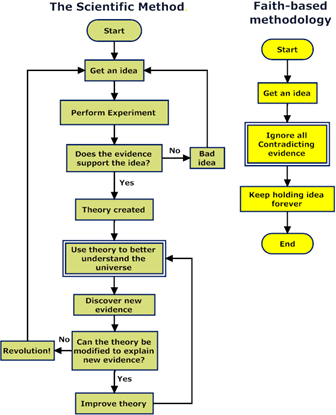While American society today is in some ways overly sexual and sex obsessed, in other ways we are a very prudish and sexually repressed society. While the Porn industry is one of the few industries that is growing in this declining economy, it is still looked down upon and viewed in secret. Millions of Americans don’t talk about sex openly and sex education is America is in many cases very poor and insufficient and in other cases non-existent. Americans tend to be more offended by Janet Jackson’s two second nipple slip than they are about the violence on the average nightly news.
Much of the American stigma concerning sex and nudity has to do with “traditional Christian values.” America has a lot of those old Puritan influences as well as the biblical view from Genesis 3 that people should be ashamed of their bodies. It is no surprise that the more fundamentally religious people are the more sexually repressed and uptight especially in relation to nudity and sexuality. As an atheist, I see nothing wrong with nudity or sexuality and it bothers me that America is so freaked out about these subjects.
“What if a child saw that nude photo?” I give up, what if? What would happen? Would their eyes pop out of their sockets? The fact is that if you took a 7 year old to see an R-rated film which had nudity, they would be bored. Of course if they knew that they weren’t supposed to see nudity because of some quaint religious stigma, they would want to see it just because it is forbidden. But if they weren’t raised to believe that sexuality and nudity were bad, they wouldn’t care less about either until they were old enough to take pleasure from it.
The reason America is so prudish is of course the Bible. Aside from Genesis 3, there are lots of examples where fornication or premarital sex is demonized. For example, the Bible throws unmarried sex in with murders and atheism and claims that these things are “worthy of death.”
Romans 1: 29-32 “Being filled with all unrighteousness, fornication, wickedness, covetousness, maliciousness; full of envy, murder, debate, deceit, malignity; whisperers, Backbiters, haters of God, despiteful, proud, boasters, inventors of evil things, disobedient to parents, Without understanding, covenant breakers, without natural affection, implacable, unmerciful: Who knowing the judgment of God, that they which commit such things are worthy of death, not only do the same, but have pleasure in them that do them.”
The Bible also claims that if you have unmarried sex, you can’t get the magical Heavenly reward:
1 Corinthians 6: 9-10 “Know ye not that the unrighteous shall not inherit the kingdom of God? Be not deceived: neither fornicators, nor idolaters, nor adulterers, nor effeminate, nor abusers of themselves with mankind, nor thieves, nor covetous, nor drunkards, nor revilers, nor extortioners, shall inherit the kingdom of God.”
There are many other “Biblical Correct” passages which deal with the evils of premarital sex. Some will argue that promiscuous sex is bad and that the Bible is correct in threatening Hell and Damnation for such a thing, but there are two issues with that. The first of course is the Bible didn’t say “promiscuous sex” it said pre-marital sex or fornication. Maybe you just had sex with one or two people. That is not promiscuous, but if you were not married at the time, that is a one way trip to eternal torture. Second, there really isn’t anything wrong with promiscuous sex as long as everyone involved is a consenting adult who knows what they are in for and everyone has taken the necessary precautions. Sex can be an emotional experience for most people, but it is not always that way. Some people just enjoy sex without a lot of emotional baggage. This is common today in a world of one-night-stands and internet hookups.
But even with the high emotions which sex often arouses, people can be mature and we can handle those emotions like adults. It is not uncommon for the average American to have between 6 to 20 sexual partners throughout their lives. But the Bible doesn’t just talk about the evils of unmarried sex, Paul didn’t think to highly of sex in general http://vardenafilotc.net/. Paul claimed that sex… any sex was bad but if you had to have sex, than married sex is better than unmarried sex.
1 Corinthians 7:8-9 “I say therefore to the unmarried and widows, It is good for them if they abide even as I. But if they cannot contain, let them marry: for it is better to marry than to burn.”
The character of Jesus as portrayed in the Bible of course took things much further. Jesus didn’t even want people to be sexually aroused.
Matthew 5:27-29 “Ye have heard that it was said by them of old time, Thou shalt not commit adultery: But I say unto you, That whosoever looketh on a woman to lust after her hath committed adultery with her already in his heart. And if thy right eye offend thee, pluck it out, and cast [it] from thee: for it is profitable for thee that one of thy members should perish, and not [that] thy whole body should be cast into hell.”
So that means no swimsuit issues, no pornography, and no Angelina Jolie movies. No wonder Christians get all bent out of shape with the slightest glimpse of nudity or sexuality. Just an accidental look or peek could land them in eternal torture. This is the reason why there are so many restrictions and censors concerning nudity and sexuality. This is why American society is as sexually repressed and frustrated as it is. I’m surprised that Christians haven’t adopted the Berka.
Filed under: Religion, sex | 32 Comments »




 Often times when discussing religion with Christians the conversation turns to science. I am not an expert in the sciences. My field is Philosophy. Just to make sure that I have all my facts straight, I e-mailed this blog to
Often times when discussing religion with Christians the conversation turns to science. I am not an expert in the sciences. My field is Philosophy. Just to make sure that I have all my facts straight, I e-mailed this blog to 
